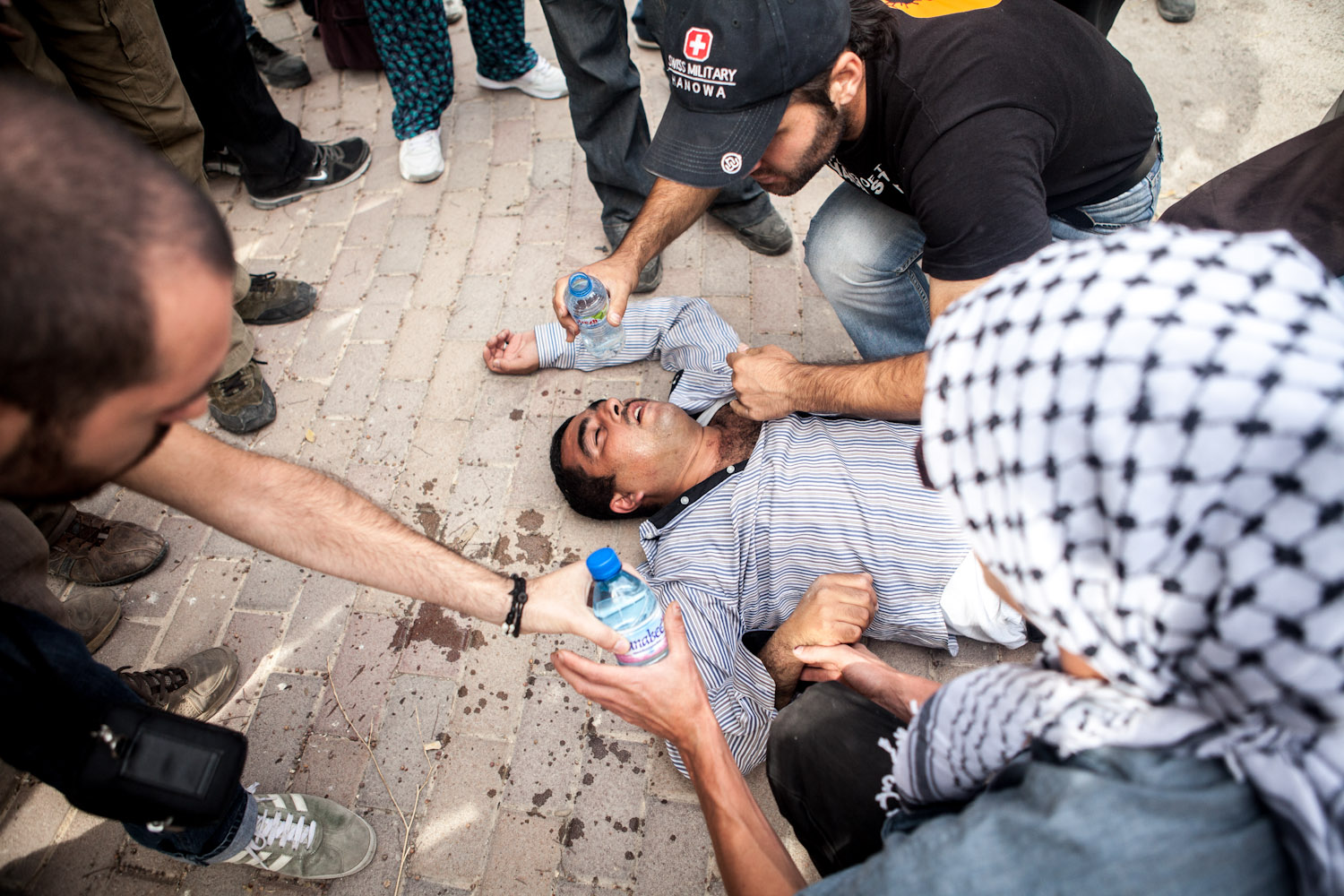Tag: Boycott Campaign
-
Bassem Tamimi injured and arrested with 3 others at Boycott Israel protest
24 October 2012 | International Solidarity Movement, West Bank VIDEO from the action: Dozens of Palestinians and internationals protest at Rami Levy Supermarket near the illegal settlement of Sha´ar Benyamin on October 24th. This direct action aims to highlight the Boycott-Divestment-Sanctions (BDS) Campaign that seeks to promote a boycott of Israeli goods. Four people, including…
-
‘Palestinians for Dignity’ rejects EU hypocrisy in upgrading its relations with the Israeli Occupation
30 July 2012 | Palestinians for Dignity, Occupied Ramallah It has come to light over the last week that the European Union (EU) has decided to upgrade its trade and diplomatic relations with the state of Israel despite the latter’s intensification of its occupation, colonization and apartheid against the Palestinian people. The new deal will…
-
Taking BDS to the streets
By Marshall Pinkerton 30 July 2012 | International Solidarity Movement, West Bank On July 26, youth activists in Nablus, in connection with the Tanweer Center for Enlightenment and Dar Al Qandeel association for arts and culture, kicked off a campaign to encourage residents of Nablus to boycott Israeli products this Ramadan and beyond. Because people…

